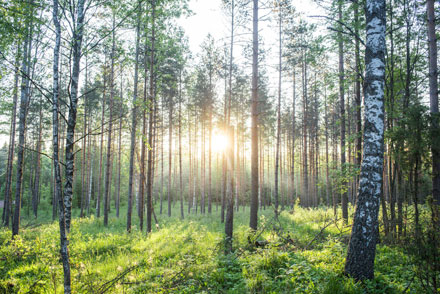
Finnish forestry giant, Metsa Group, has renewed its strategic sustainability objectives, aiming to increase its environmental performance by 30% in the next decade. A key factor will be increasing the amount of carbon stored in forests and forests products by 2030. Source: Philip Hopkins for Timberbiz
This will be achieved in three ways:
- Expanding the area covered by Metsa Group’s forest management services by 30% compared with 2018.
- The amount of carbon stored in products will also be increased by 30% through investing in products that store carbon for a long period of time.
- Biodiversity will be safeguarded through increasing the volume of decayed wood in forests.
The 2030 objectives will cover all Metsa Group’s operations and across their supply chains.
Metsa’s vice-president for sustainability, Paivi Makkonen, said the company’s aim was to have fossil-free production by 2030.
“This means that the mills will not use fossil fuels, and products will be made from renewable raw materials,” she said.
Production efficiency would be guaranteed by using all the production side streams and by reducing the use of process water by 25% from 2018.
Ms Makkonen said progress of the sustainability objectives would be strictly verified within the company’s operations and supply chains.
“The aim is to ensure that all personnel will act according to Metsa Group’s ethical principles, and the work environment will be accident-free,” she said. “We will focus on sustainability of our supply chain.”
The heart of Metsa Group’s strategy is using renewable wood from sustainably managed northern forests. The latest National Forest Inventory showed the annual increase of growing stock was 110 million cubic metres – double the growth rate of the 1970s.
The Finnish Environment Institute says two thirds of this increase is due to forest management and one third by favourable climate conditions for forest growth.
The institute’s senior scientist, Sampo Soimakallio, said when trees grow, they bind carbon.
“However, it is not the same thing as a carbon sink. Only when the carbon stock of forests grows will the forests act as carbon sinks,” he said in Metsa’s latest Sustainability Report.
“This requires that the growth binds more carbon that is removed in wood harvests and released in wood decay and soil respiration. If these factors are in balance, the forest stock remains constant and the sink is zero. Currently, Finnish forests are a net carbon sink.”
Metsa Group’s bioeconomic value chain extends from wood sourcing to end products, such as wood products for industrial construction, lightweight paperboards, tissue and cooking papers made from high-quality pulp.
Its circular economy means the manufacture and use of products is designed to minimise waste and allow recycling of the materials, which retain their value. The products can be recycled or as a final stage used for energy production. More than 90% of production side streams are used.
In 2018, Metsa Group’s sales totalled 5.7 billion Euros. The company employs about 9300 people.







